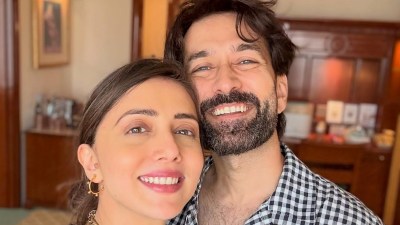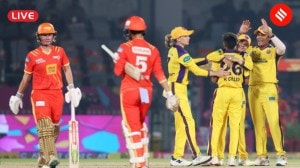Between sticks and clones
Unity is the very essence of team sport, the Musketeerish ethos a fact of life on the playing field. All pulling in the same direction, whet...

Unity is the very essence of team sport, the Musketeerish ethos a fact of life on the playing field. All pulling in the same direction, whether boat crew or tug-of-war team. So what happens when a player 8212; a star, at that 8212; is rejected by his teammates on grounds of rivalry, jealousy, or plain stupidity? An act of suicide, or the best thing for the team? In other words, is a team a collection of like-minded individuals or is there room for a dissenting voice? Basic management technique will tell you that one maverick is good in a room full of clones; but on the field of play, in the space of 90 feverish minutes or a split second between the wickets, there is no time to assess, assuage and coax. It has to be complete understanding.
The issue here is, obviously, the omission of Dhanraj Pillay from the Indian team currently playing in Madrid. While the official reason is injury to India8217;s most famous contemporary hockey player, it8217;s no secret that Pillay has been axed because his teammates don8217;t want him around. The player himself hinted at that when he was dropped, and was more specific in his famous interview to this paper last year, saying teammates from Punjab weren8217;t passing the ball to him.
There are several reasons for this. One, and the most obvious, is the bitter and destructive traditional rivalry between regions, something that thankfully doesn8217;t plague our cricket any more. There is the Punjab lobby, and then there8217;s everyone else. Punjab has traditionally supplied the stars; for the past few years, and especially now, they have been upstaged by the man from Pune. And that8217;s the second reason: Dhanraj is Mr Indian Hockey, the rest mere accessories to his sublime skills. Off the field, his rivals have to grin and bear his showboating and tantrums; on the field, as any schoolboy will tell you, putting Dhanraj in his place is easily done.
With a coach unwilling or unable to recognise that or act on it, and a federation presumably in sync too, it leaves one player out in the cold. In strictly technical terms, Indian hockey seems to have shot itself in the foot. No Pillay, no potency is the unwitting message emanating from Madrid. There is 8212; would you believe it? 8212; even a suggestion that his adversaries of yesterday want him back.
They should seriously re-think. This sounds like heresy, but weigh the facts in the balance. An ageing warrior, still capable of his moments but his powers waning by the day; and unwanted, for various reasons, by his teammates. It8217;s happening right in front of us in the Indian cricket team, too: Nayan Mongia is among the best current wicketkeepers, Ajay Jadeja worth a try. Yet they don8217;t have a chance of making the team because they aren8217;t wanted. It8217;s happening with Roy Keane, English football8217;s most complex, controversial and compelling footballer; he walked out of the Irish national team, of which he was an iconic captain, days before the 2002 World Cup. Now he wants in, and his teammates, for all his unique skills, are keeping the door shut.
Sporting history is littered with the careers of geniuses who couldn8217;t be reined in. Football, a sport that calls on base passions, has more than cricket: George Best retired at age 26; Paul Gascoigne, ruined at a younger age; Eric Cantona, who survived till 30 only because of sheer willpower. It needs a very strong coach 8212; which Cantona had, and Best and Gascoigne didn8217;t 8212; to hone genius, keep it focused, get the best out of it. Cricket, where the role of coach is different, offers us the contemporary example of Lara, who is now beginning to rein himself in, to the benefit of West Indies cricket.
Indian hockey isn8217;t blessed with visionary coaches, or those with exceptional man-management skills. It doesn8217;t even think of these as assets worth considering. It is blessed with a genius, but a brooding genius with no one at the helm could be more harmful than a team of above-average talent. Perhaps it8217;s time to do what the Australians, those peerless masters of cold, ruthless career management, do best: cut the cord. We will repent at some stage, sooner rather than later, and maybe that will make those in charge of our hockey sit up and take notice. Maybe that is when our sporting system will allow for something out of the ordinary.
- 01
- 02
- 03
- 04
- 05































